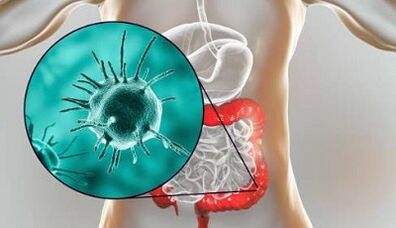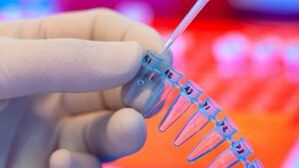
Parasitic disease is a large group of diseases caused by helminths, some stinging animals and protozoa.
Despite all the achievements of modern medicine and the development of hygiene, according to statistics, about 90% of people in the world at least once in their lives faced these pathologies.How to suspect the disease and what tests for parasites to pass, you can learn from this article.
Types of parasites
Parasites are called organisms that exist due to the vital activity of the organism.Having settled in the human body, they during their growth and reproduction lead to a deficiency of trace elements, vitamins, proteins and other nutrients.Both can lead to recurrence and exacerbation of chronic conditions, and themselves cause damage to internal organs.
There are the following types of parasites that can cause diseases in humans:
- Protozoa (amoeba, lamblia);
- Pathogenic microorganisms (Chlamydia, Mycoplasmas and others);
- helminths (ascarids, pinworms, bull and pork strings, etc.);
- Parasites (scabies, demodex).
The main feature of the pathologies caused by them is a long-term or low symptom-free course.Parasites skillfully hide their existence, trying to squeeze the owner out of the body, until his reserves are depleted, and the organ or tissue is seriously damaged.
Symptoms of parasitic diseases
Parasitic pathologies usually mean helminthiasis - diseases caused by the presence of worms in the body.In most cases, they are found in children, however, they can develop in adults in case of neglect of hygiene rules.For a long time after infection, they do not manifest themselves in any way, or are accompanied by unclear symptoms that often go unnoticed.

Each disease has certain characteristics but there are also common signs:
- Headache, dizziness, weakness and fatigue increase.These manifestations are the result of intoxication caused by poisoning with parasite waste products.
- Exacerbation of bronchial asthma and allergic rhinitis, dermatitis, urticaria.They arise due to increased sensitivity to helminth cells and their excretory products.
- Digestive system dysfunction (abdominal pain, nausea, vomiting, heartburn, constipation and diarrhea).Parasitic worms in the intestinal lumen lead to inflammation and intestinal obstruction due to obstruction of the intestinal lumen.
- Anemia, vitamin deficiency, weight loss.Occurs due to deficiency of proteins, vitamins and trace elements, reduced hormone production.
- Sleep disorders, chronic fatigue, irritability, stress, muscle and joint pain.
To detect most types of helminths, stool tests or blood donation should be conducted to find the presence of specific antibodies.You can perform a test at the clinic at your residence, when admitted to the hospital, as well as at any private laboratory.Some medical centers provide a comprehensive test, in which you can diagnose the presence or absence of some parasites in the body.
Parasite testing

The treating doctor will tell you what tests you need to have if you suspect a parasitic disease based on your complaints, medical history, and clinical presentation of the disease.
The diagnosis starts with a general blood test.The most typical changes of helminths will be:
- Decreased hemoglobin concentration and decreased red blood cell count (occurs due to protein and iron deficiency).
- Increased white blood cell count, increased ESR (a sign of inflammation of internal organs, especially the digestive tract).
- The increase in eosodilia (a characteristic sign of allergies occurs due to the irritating impact of helminth waste).
For a more accurate diagnosis, fecal analysis for helminth eggs and debris is used.When examining feces, you can detect pathogens of ascariasis, whipworm, hymenoptera, and also detect the presence of protozoan microorganisms (giardia).
It is important to remember that with just a single test, the probability of detecting worm eggs in the stool is 30%.Therefore, to clarify the diagnosis, with the first negative result, the study is carried out two more times with an interval of 2-4 days.
To increase the accuracy of the study, it is important to prepare carefully before sending the stool for analysis.Biological material should be collected only in special sterile containers, which can be purchased at a pharmacy.A few days before the test, you should stop eating foods with stains (beets, red berries, exotic fruits, sweets and drinks with dyes), and do not use laxatives or rectal suppositories.
enzyme immunoassay
Using ELISA analysis in adults and children, it is possible to detect antibodies produced by the human body in response to the presence of foreign objects in it.To do this, blood is taken from a vein, where, in the laboratory, specific IgG antibodies to Giardia, Trichomonas, pork and bovine tapeworms, Trichinella, Echinococcus, Toxocara, Ascaris and pinworms can be detected.Using this research, you can detect the presence of almost all types of parasites in the human body.
Preparing for studying is not difficult.The test must be performed in the morning, on an empty stomach after 8-10 hours of fasting.Before the day of the study, it is recommended not to take antibacterial and antihistamine drugs, and also not to eat allergenic foods (honey, seafood, exotic fruits and red berries, nuts).Immediately before donating blood, experts recommend resting in the laboratory waiting room for 10-15 minutes.
Research results are known after 1-2 days.These studies are performed as an initial diagnosis and as a control measure for treatment.
Timely detection and effective treatment for modern parasites allows you to avoid health complications for health.





























